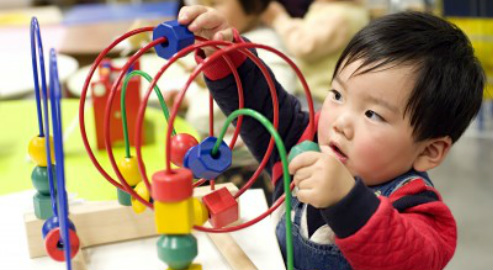|
Childhood only comes once in life, and it is precisely during these years that the blueprint of an individual’s character is drawn. We can choose to give our children opportunities to discover their talents and establish healthy physical, mental, and spiritual habits that will last them a lifetime, or we can allow these priceless moments to be missed through our busyness—because of unclear priorities on our part, or through too much time spent in non-interactive forms of entertainment.
*** Children need to have activity; they need other means of development than just what they can glean from videos. Sadly, other activities in children’s lives are getting fewer and fewer these days. They need to have balance in their lives, even if it means limiting their daily and weekly time when they watch videos, or time spent on a computer. While in many ways this is the direction society at large is headed, you need to remember that what you put into a child at a young age will last throughout their lifetime. *** Preschool conjures up images of naptime, playing in the sandbox, and learning how to count. These days, little fingers typing on the keyboard and clicking a mouse are also part of the early education experience. Critics, however, say that starting children on computers too early can disrupt important mental skills including listening, paying attention, and focus. One educator believes that computer usage can alter the way a child’s brain develops. “The computer doesn’t exercise the brain and body together in the same way that normal childhood play does,” said Jane Healy, an educational psychologist and author. For children, learning to catch, throw, and climb are more important than manipulating a computer mouse, Healy said. It is more important for children to learn to express themselves and play creatively. For example, hands-on play—such as making a doll out of a clothespin will exercise more ingenuity than choosing the color of a doll’s hair onscreen and clicking it, she said. “Kids are meant to be avid learners, not waiting for the next screen to pop up,” Healy said. “The child needs to imagine out of their own mind, not by using prepackaged icons.” Developing good social skills is also critical at the preschool age, Healy said. If the child is “glued to the screen,” she is spending less time learning to relate well to others, speaking, and expressing herself. (Based on article by Katie Dean from Wired magazine.)
0 Comments
Leave a Reply. |
Categories
All
Archives
March 2024
LinksFree Children's Stories |


 RSS Feed
RSS Feed
